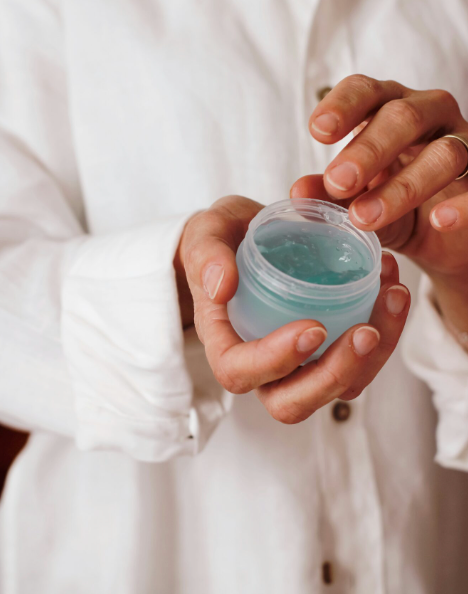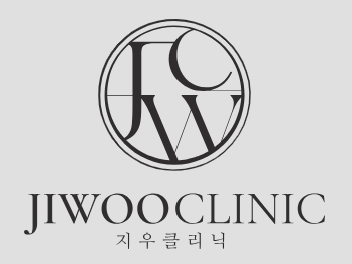Collagen Benefits: Rather Than Eating or Applying
Skin Confidence Filled with Collagen
There’s a word often mentioned like a cure-all when discussing skincare. It’s the magical ingredient that’s used in treatments, applied to the face, and even consumed. Although its exact role and effects may not be fully understood, everyone believes it’s good for the skin, so it’s something people make sure to include in their routine. That ingredient is collagen. There’s an endless amount of content explaining collagen’s benefits, and products for consuming and applying collagen continue to flood the market.
Interest in collagen is increasing by the day. The market for consumable collagen is expected to reach a scale of 10 trillion KRW by 2030. What’s fascinating is that, at the same time, debates about the effectiveness of collagen have been ongoing for a long time. So, let’s clarify what collagen actually is and how to effectively boost it.
Before discussing the benefits of collagen, let's define it.
Collagen is a type of protein. While it is often mentioned in the context of skin, it is a versatile protein that works in various connective tissues such as bones, muscles, blood vessels, and teeth. Collagen makes up 25-35% of the protein in our body, highlighting its importance.
What we should focus on is the relationship between the skin and collagen. Beneath the epidermis, which is the outer layer of the skin, lies the dermis. Collagen makes up 70-90% of the dermis. In the dermis, collagen forms a network-like structure, serving the role of maintaining the skin’s shape, much like the rebar in a building.
A solid foundation is an essential condition for constructing a safe and durable building. The problem in construction controversies has often been the absence of rebar. The same goes for the skin. To maintain firm skin, collagen, which acts as the pillar, must be densely present. Collagen also has the ability to attract moisture, helping the skin stay hydrated.
Why is Collagen Important and What Are Its Benefits?
Like all elements that make up the body, collagen also has a lifespan. When gaps form, newly produced collagen takes its place. The issue, as always, is age. As we grow older, collagen is directly affected. Not only does the rate of new collagen production decrease, but its total amount also reduces.
What does a decrease in collagen levels mean for the skin? Let's take a houseplant as an example. When a plant grows to a certain size, it can no longer support its weight and begins to tilt. If left unattended, its structure may collapse and it will wither quickly, so a support stick is used. The support keeps the plant upright, much like collagen. Now, imagine removing these supports one by one. The once-firm stem begins to droop. The same happens with collagen. As the collagen that supported the skin gradually diminishes, the skin loses volume and wrinkles form. This change is especially noticeable around the under-eye area, cheeks, jawline, and neck.
By now, you probably understand. Managing collagen is essential not only for hydration but also as a foundation for maintaining firm skin. If collagen is effectively managed, it can contribute to overall skin health.
Is the Effectiveness of Collagen Supplements Real?
You've probably heard that pig skin, pig's feet, and chicken feet are rich in collagen. Although it may sound unbelievable, this is a proven fact. The problem, however, is whether this collagen can be effectively absorbed. Just because you consume collagen doesn’t mean it will directly reach your skin.
When we ingest something, it inevitably passes through the digestive system. This applies to both pig skin and collagen supplements. Collagen, after going through the digestion process, is broken down into smaller components like amino acids. These are absorbed by the body, used as energy, or utilized in various forms by different organs. This means collagen doesn’t go directly to the skin.
What about low molecular collagen, which is currently leading the collagen trend? The principle of low molecular collagen is that it is broken down into a size that the body can absorb more easily. Compared to consuming it through food, its absorption by the body may be better, but the fact remains that it is not solely directed to the skin. Therefore, it is still unclear whether enough of the collagen will reach the skin to significantly increase collagen synthesis, and more research is needed in this area.
To summarize, it is certainly possible that collagen supplements in the form of oral products may have a positive effect on the skin. However, whether they can deliver results that are practically noticeable is still an open question.
The Effectiveness of Topical Collagen: Even You?

Recently, collagen-infused cosmetics can be easily found, ranging from ampoules and creams to masks. But does applying these products to the skin actually replenish collagen? The answer is no. This is because collagen cannot penetrate the skin.
The skin has a rule called the "500 Dalton rule." Dalton is a unit of molecular weight, and in order for a substance to be absorbed into the dermis, its molecular weight must be below 500 Daltons. Now, you might be wondering how many Daltons collagen has. The molecular weight of collagen is almost 100,000 Daltons. The skin acts as a protective barrier, so if collagen could pass through, all sorts of impurities would enter the skin.
Some people may claim to have definitely seen results from using collagen-based products. While it is true that collagen-related cosmetics can improve the skin, as mentioned earlier, collagen has the property of attracting moisture. The moisturizing effect can make the skin feel plump and dewy. However, this is a different issue from whether collagen production is actually occurring in the skin due to the cosmetics.




